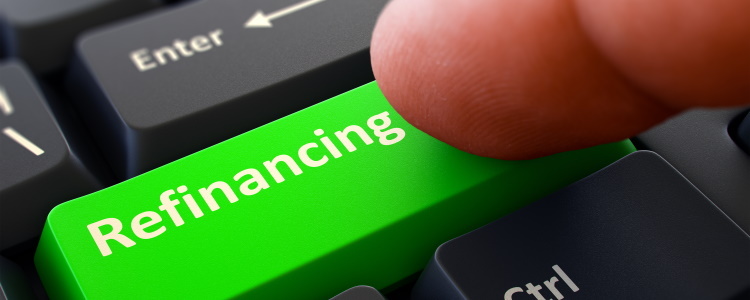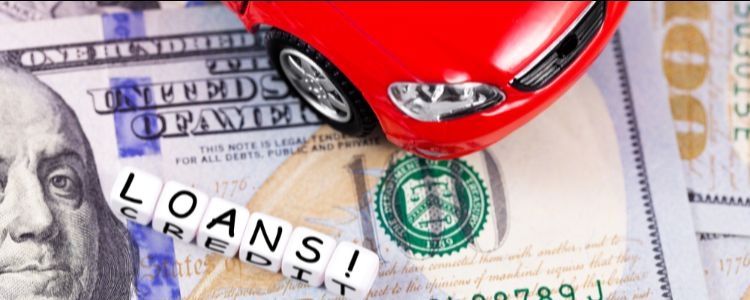Refinancing is a great way to get better terms on an auto loan. But if you have negative equity, you can run into trouble getting approved for refinancing. Because a car is treated as collateral, most lenders won’t refinance a vehicle that’s upside down, as the risk of loan default is much greater with negative equity. If you're ready to look at refinancing to save money on your car loan each month, there are a few requirements you need to be aware of if you need to refinance. Your vehicle's equity position is one of them.
What's refinancing?
When you refinance a car, you replace your current loan with a new one, sometimes through a new lender. This is typically done to make space in your monthly budget by lowering your auto loan payment. It can be done by either qualifying for a lower interest rate or stretching your loan term, sometimes both. However, if you're upside down with negative equity, refinancing your car is not an option.
Why Won't a Lender Work With Negative Equity?
You typically can't refinance a vehicle that's upside down – worth less than you owe on its loan – because there's nothing in it for the lender. If you default, the lender can't recoup their costs by selling at an auction. One of the most stringent rules of refinancing is that there must be equity in your vehicle. This means that your car has to be worth more than you owe on its loan.
Refinancing Requirements to be Aware Of
Other refinancing requirements include having had your loan for at least one to two years, having a good or improved credit score, and having a vehicle and loan amount which fit into the lender's parameters – typically cars must be less than 10 years old and have less than 100,000 miles on them.
How to Get Rid of Negative Equity
If all your ducks are in a row, but you still have negative equity, there are a few steps you can take to speed the process along so you can reach for the refinancing opportunity you're looking for. To get your vehicle into an equity position, you need to make sure you owe less than the vehicle is worth.
The first thing you need to do to determine where you stand is find out how much you owe on the loan. Next, estimate how much your car is currently worth from sites such as Kelley Blue Book or NADA Guides, or, for more accuracy, get it appraised by a dealership. Take that number and subtract it from your loan balance. The difference is how much equity, or negative equity, you have.
 Once you know your car's value, you can work to pay off your loan faster, and save on interest charges. This will help put you in an equity position faster than following your natural loan repayment schedule, especially if you have a higher interest rate due to bad credit.
Once you know your car's value, you can work to pay off your loan faster, and save on interest charges. This will help put you in an equity position faster than following your natural loan repayment schedule, especially if you have a higher interest rate due to bad credit.
- Consider paying more each month. If you're able to, one of the ways to get rid of negative equity more quickly is by paying more each month. You need to keep your car until you have equity, but you also need to handle the larger payments financially.
- Split your payments in half. By paying half of your car loan payment every two weeks, you actually end up making 13 full payments instead of 12. Additionally, since interest accrues based on your loan balance, this helps knock down your interest charges a little every few weeks.
- Round up your payment. If you want to save on your loan and get to refinancing faster, round up your auto loan payments to the next highest $50 or $100 dollars. This can be a bit tougher if your budget is already tight, but rounding up will get you into the refi range quickly. Say your loan payment is $317.64; you can round up and pay $350 each month, or really bite the bullet and put $400 on your loan each month.
- Pay in one lump sum. The best way to pay off negative equity is by paying the difference in one lump sum.
Another option is to sell your vehicle privately. Unlike trading in your car, you can typically get more money from a private sale. This only works, however, if you can clear enough from the sale to either pay off the loan or can afford to pay any difference out of pocket.
The Bottom Line
Before you consider refinancing your car loan, ensure you aren’t upside down. Not only will it make it easier to get approved for refinancing, but you won’t have to pay any difference out of pocket. When you're ready, you can view and compare refinancing quotes by filling out the simple and free refinance request form on our website.
Auto Credit Express can also help connect you to a dealer who can assist you with a loan on a new vehicle. We work with a nationwide network of special finance dealerships that have lenders available to help people who are struggling with credit. Our service is free of cost and obligation. Simply fill out our auto loan request form and we can get started finding you a local dealer that’s right for you.


















